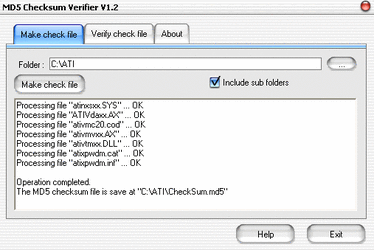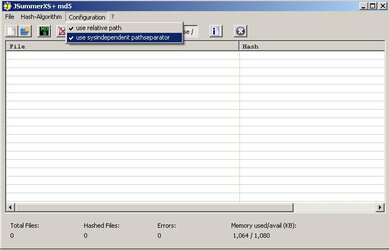- Joined
- Sep 5, 2007
Program to create and verify checksum
Has anyone of you triedthe MD5 checker ? Is it effective at spotting data corruption?
Edit- this program does not allow me to select folders, only individual files. Are there any free programs which allow me to create checksum files of individual files in folders?
Another question. Where and how is the checksum file stored for verification?
I would like a program which have similar options to the one below.
http://www.irnis.net/soft/acsv/shots.shtml

http://www.flashplayerpro.com/MD5Checksum/Screenshot.htm
Edit 2- This program, "MD5 checksum verifier" by FlashPlayerPro.com seems to be ideal for my needs too but it is not free...
Has anyone of you triedthe MD5 checker ? Is it effective at spotting data corruption?
Edit- this program does not allow me to select folders, only individual files. Are there any free programs which allow me to create checksum files of individual files in folders?
Another question. Where and how is the checksum file stored for verification?
I would like a program which have similar options to the one below.
http://www.irnis.net/soft/acsv/shots.shtml

http://www.flashplayerpro.com/MD5Checksum/Screenshot.htm
Edit 2- This program, "MD5 checksum verifier" by FlashPlayerPro.com seems to be ideal for my needs too but it is not free...
Last edited:



